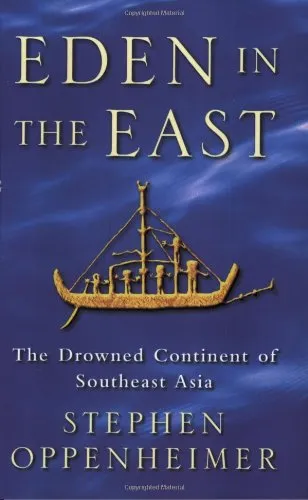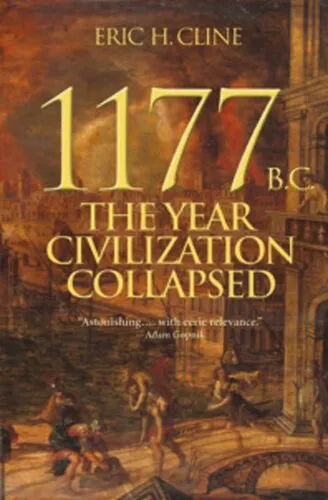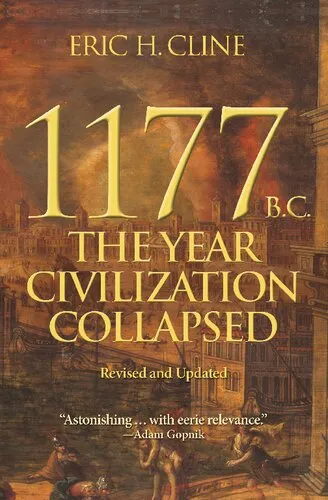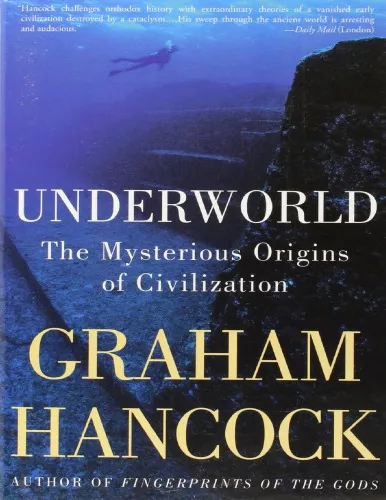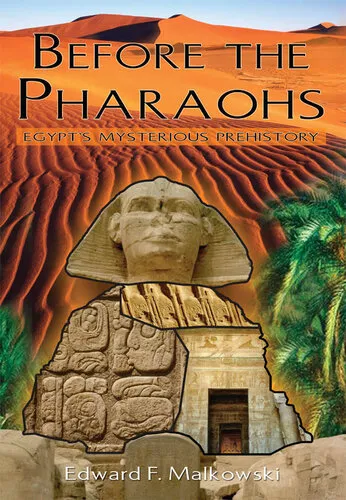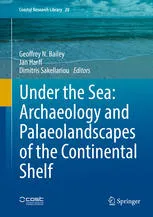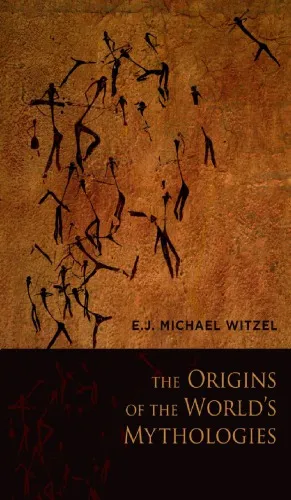Eden in the East: The Drowned Continent of Southeast Asia
4.0
Reviews from our users

You Can Ask your questions from this book's AI after Login
Each download or ask from book AI costs 2 points. To earn more free points, please visit the Points Guide Page and complete some valuable actions.Related Refrences:
Persian Summary
Introduction to 'Eden in the East: The Drowned Continent of Southeast Asia'
Stephen Oppenheimer's groundbreaking book, 'Eden in the East: The Drowned Continent of Southeast Asia', challenges conventional perceptions of historical migrations and the cradle of civilization. This work offers an erudite exploration into the prehistoric influences of the Southeast Asian region, reimagining the origins of cultural and genetic threads that have woven societies together across the world.
Detailed Summary of the Book
The central premise of 'Eden in the East' posits that a highly advanced civilization once thrived in what is now the Southeast Asian region, which Oppenheimer identifies as a possible "Garden of Eden." This theoretical land, often submerged by rising sea levels at the end of the last Ice Age, purportedly influenced a wave of migration and cultural diffusion that shaped ancient societies across the globe.
Oppenheimer employs a multidisciplinary approach, incorporating archaeology, linguistics, genetics, and folklore to support his theory. Through extensive research, he argues that the dispersal of peoples from this drowned land may have significantly affected the development of key civilization areas in India, China, the Middle East, and beyond. The book challenges the traditional Eurocentric perspective of ancient civilization birthplaces by presenting compelling alternative narratives rooted in Southeast Asia.
The quest to uncover the roots of this theory takes readers on a captivating journey through myth and history. Oppenheimer reinterprets myths such as the Flood narratives prevalent across many cultures. He suggests these myths have a shared provenance in the real submergence of extensive lands in Southeast Asia, which dramatically altered human history.
In exploring these themes, Oppenheimer provides evidence that not only promotes a new understanding of cultural evolution but also enhances our grasp of human interconnectedness across continents.
Key Takeaways
- Reconsideration of Southeast Asia as a potentially critical origin of worldwide human migration and cultural dissemination.
- Integration of diverse research fields to form a cohesive argument against traditionally accepted theories.
- Highlighting the importance of geological and climatic events in shaping historical migrations and cultural transformation.
- Emphasis on the interconnectedness of ancient civilizations and recognition of shared stories and myths.
Famous Quotes from the Book
"The story of our origins lay not so much in the Mediterranean or Mesopotamian sunshine but beneath the endless rainclouds of Sunda."
"The features of the civilization we understand were forged not in the obscurity of deep time but amidst the turbulent waters of rising seas."
Why This Book Matters
'Eden in the East' matters because it challenges and potentially reshapes our comprehension of human prehistory and cultural evolution. In an age where history is constantly reevaluated through new lenses, this book exemplifies innovative thought rooted in scientific inquiry and bold hypothesis. By proposing that a "lost civilization" in Southeast Asia significantly influenced the world's ancient societies, Oppenheimer not only adds depth to our historical understanding but also emphasizes the dynamism and interconnectedness of human culture.
For readers and researchers interested in the fields of anthropology, history, genetics, and archaeology, 'Eden in the East' serves as a vital resource that encourages reflection on how we perceive and reconstruct human pasts. Additionally, it fosters appreciation for the contributions of often-overlooked regions and encourages global perspectives in examining history's intricate web.
Free Direct Download
Get Free Access to Download this and other Thousands of Books (Join Now)
For read this book you need PDF Reader Software like Foxit Reader
Accessing books through legal platforms and public libraries not only supports the rights of authors and publishers but also contributes to the sustainability of reading culture. Before downloading, please take a moment to consider these options.
Find this book on other platforms:
WorldCat helps you find books in libraries worldwide.
See ratings, reviews, and discussions on Goodreads.
Find and buy rare or used books on AbeBooks.
